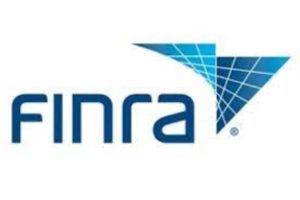
According to FINRA’s order, from November 2015 through at least March 2023, Credit Suisse reported to the Trade Reporting and Compliance Engine (TRACE) approximately 9,000 late trades—including 7,000 transactions in securitized products, approximately 1,800 transactions in corporate bonds, and approximately 165 transactions in agency bonds—and hundreds of thousands of inaccurate TRACE reports.
FINRA Rule 6730 Violations
Under FINRA Rule 6730(a), each member that is a party to a transaction in a TRACE-eligible security must report the transaction to TRACE “no later than within 15 minutes of the time of execution, except as otherwise specifically provided in the rule.” FINRA Rule 6730(a)(5) provides that members have an obligation “to report to TRACE transaction information promptly, accurately, and completely.”
FINRA said Credit Suisse failed to timely report to TRACE transactions in securitized products, corporate debt, and agency debt securities. “Most of these late reports, which ranged from a few minutes to several days late, had one of two root causes: (i) manual errors or omissions that delayed reports or (ii) amendments not submitted in a timely manner,” FINRA stated.
FINRA Rule 6760 Violations
FINRA Rule 6760 requires that each member that is a managing underwriter of a new issue distribution or offering of a TRACE-eligible security provide notice to FINRA of certain information regarding the new issue prior to the execution of the first transaction of the offering, except as provided in the rule. From July 2016 through June 2021, Credit Suisse “failed to timely provide notice to FINRA for approximately 190 new issue offerings in TRACE-reportable securities,” FINRA stated.
FINRA Rule 3110 Violations
From at least November 2015 through at least March 2023, Credit Suisse’s supervisory system concerning TRACE reporting was not reasonably designed to achieve compliance with FINRA Rules 6730 and 6760 for several reasons, FINRA said.
For example, “Credit Suisse’s TRACE supervisory reviews identified a high number and percentage of late trade reports in securitized products by March 2018 and in corporate bonds by September 2021,” and yet Credit Suisse “did not fully address or remediate the underlying causes for the delayed reports, erroneous reports, and reports requiring subsequent amendments that resulted in the firm’s late reporting,” FINRA said. “Instead, the firm established internal late error rate targets for securitized products and corporate bond reporting that were too high to address its ongoing pattern of late trade reporting described above.”
FINRA also cited several instances where Credit Suisse’s supervisory reviews for accuracy were unreasonable. Thirdly, from July 2016 to June 2022, the firm did not have a supervisory system, including written supervisory procedures, to review the timeliness of notices it provided to FINRA of new issue offerings pursuant to FINRA Rule 6760.
FINRA Rule 3110(a) requires a member firm to establish and maintain a system to supervise the activities of each associated person that is reasonably designed to achieve compliance with applicable securities laws and regulations, and with applicable FINRA rules. FINRA Rule 3110(b) further requires a member firm to establish, maintain, and enforce written procedures to supervise the types of business in which it engages and the activities of its associated persons that are reasonably designed to achieve compliance with applicable securities laws and regulations, and with applicable FINRA rules.
Accordingly, Credit Suisse’s supervisory failures constituted a violation of Rule 3110. Furthermore, all the rule violations described above also constitute a violation of FINRA Rule 2010, which states that “[a] member, in the conduct of its business, shall observe high standards of commercial honor and just and equitable principles of trade.” ![]()
Jaclyn Jaeger is a contributing editor at Compliance Chief 360° and a freelance business writer based in Manchester, New Hampshire.

